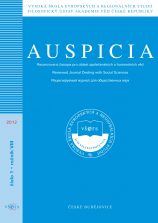Alternatívny spôsob konania v slovenskom trestnom práve procesnom s poukazom na europeizáciu trestného práva
Alternatives to Criminal Proceedings in Slovak Criminal Procedural Law with Respect to Europeanization of Criminal Law
Author(s): Jaromír ŠmátralaSubject(s): Criminal Law, EU-Legislation, Court case
Published by: Vysoká škola evropských a regionálních studií, z. ú.
Keywords: criminal proceeding; alternatives to criminal proceedings; diversion; Europeanization of criminal law; recommendation; reconciliation;
Summary/Abstract: In this article the autor deals with alternatives to criminal proceedings in the criminal procedural law while referring to the Europeanization of criminal law in this area. Alternatives to the criminal proceedings are characterized by so-called diversions in the criminal proceedings. In the Slovak criminal procedural law a diversion includes the following institutes: conditional suspension of criminal prosecution, conditional suspension of criminal prosecution of cooperating accused, agreement on a guilt and punishment, reconciliation and criminal warrant. In the first part of the article the author focuses the attention on the theoretical definition of diversions and their features. In the second part the author deals with several recommendations of the Committee of Ministers for Member States such as Recommendation No R (87) 18 of the Committee of Ministers to Member States concerning the simplification of criminal justice, Recommendation No R (99) 19 of the Committee of Ministers to Member States concerning mediation in penal matters, Recommendation Rec (2000) 19 of the Committee of Ministers to Member States on the role of public prosecution in the criminal justice system, and Recommendation No R (85) 11 of the Committee of Ministers to Member States on the position of the victim in the framework of criminal law and procedure. In the conclusion the author suggests that the diversion represents a departure from the resolution of criminal case which would otherwise be decided by judgement (except for the procedure of the agreement on guilt and punishment), and thus it promotes to avoid delays in judicial proceedings.
Journal: Auspicia
- Issue Year: 2014
- Issue No: 1
- Page Range: 105-113
- Page Count: 9
- Language: Slovak

